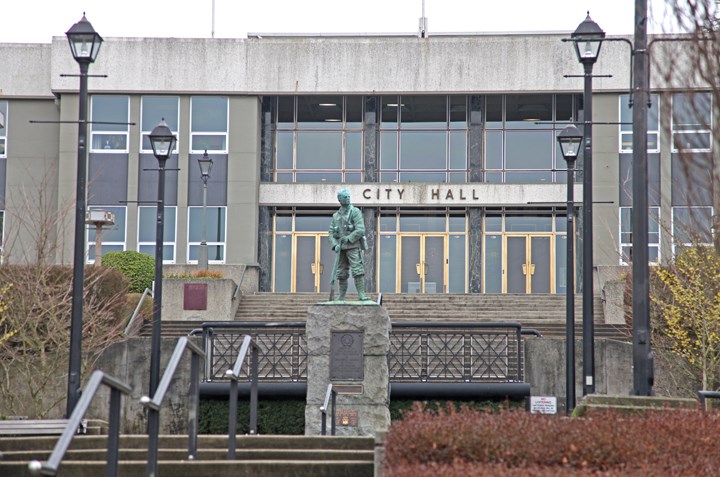Dialogue about a proposed coal facility in Surrey is heating up among municipalities.
New Westminster city council has directed staff to participate in the Corporation of Delta’s independent interagency review committee, which will be considering the Fraser Surrey Docks proposed direct transfer coal facility in Surrey. Delta invited New Westminster to participate in the committee, which aims to address concerns and answer outstanding questions, especially those relating to potential health impacts associated with the facility.
A staff report stated that the committee won’t have official status with Port Metro Vancouver’s permitting process but would give more opportunity for research and dialogue to help address local and regional concerns about the facility.
“While the facility is expected to create a number of jobs within the region, there are a number of potential environmental issues, both local and global, and social issues, particularly related to health, that have not been resolved to the satisfaction of many local stakeholders, raising concerns about the sustainability of operating the facility,” stated the staff report.
Port Metro Vancouver received an application to allow the Fraser Surrey Docks to accommodate a facility where coal is loaded from trains onto barges using a conveyor system. The coal, which would be mined in the United States and shipped to Fraser Surrey Docks by rail, would eventually be sent by barge to China.
The staff report states that concerns have been raised about local environmental and health impacts by the coal facility’s operation, as well as the global impact of expanded coal use. Among the concerns are engine emission from trains and tug boats, greenhouse gas emission from burning coal, dust from train movements and coal transfer operation, chemicals used in train cars and barges for dust suppression, soil and water contamination and risks related to explosions, fire, collisions and spills.
In related news, New Westminster MLA Judy Darcy recently wrote to Port Metro Vancouver urging it to engage in a comprehensive, independent health assessment about the impact of the proposed facility. While the NDP supports B.C.’s coal industry and coal exports, as more than 5,000 British Columbians work and support their families through coal mining and related industries, she said that ignoring the “very real public concerns” that have been raised about the Fraser Surrey Docks project threatens to tarnish the port’s reputation and undermine its credibility.
New Westminster endorses hotel room tax
The city is supporting Tourism New Westminster’s bid to secure a two per cent tax to raise money for tourism related marketing activities.
In a letter to Tourism New Westminster, the city offered its support for the proposed two per cent municipal regional district tax that’s formerly known as the hotel room tax. Staff note that several neighbouring municipalities, including Burnaby, Richmond, Vancouver and Surrey, have approved collection of the tax.
“Any time you go and stay in a hotel room anywhere in the Lower Mainland, you are paying a tax,” said Coun. Betty McIntosh. “I say, let’s keep this moving forward and support it.”
City wants national dementia strategy
New Westminster is calling on all levels of government to support a national dementia strategy.
That’s one of the resolutions the city is taking to the Lower Mainland Local Government Association conference in May. The city’s resolution also urges all citizens to become more aware and engaged about the far-reaching effects of the disease.
“It’s quite devastating, not only to the person themselves, but also to the caregiver,” said Coun. Lorrie Williams. “There is no known cause or cure.”
Williams said her mother suffered from dementia in the latter part of her life.
“Canada has an aging population,” she said. “This is going to be a major problem.”



